This article was co-authored by Liana Georgoulis, PsyD. Dr. Liana Georgoulis is a Licensed Clinical Psychologist with over 10 years of experience, and is now the Clinical Director at Coast Psychological Services in Los Angeles, California. She received her Doctor of Psychology from Pepperdine University in 2009. Her practice provides cognitive behavioral therapy and other evidence-based therapies for adolescents, adults, and couples.
There are 11 references cited in this article, which can be found at the bottom of the page.
This article has been viewed 24,978 times.
Bipolar disorder is a serious mental illness that is characterized by highs and lows. These cycling peaks and valleys can significantly disrupt a person’s life and ability to function. While extreme highs, called manic episodes, can be easy to spot, milder forms of mania and depressive lows can be more difficult to distinguish, making bipolar disorder extremely challenging to diagnose. Knowing what signs to look for in mania can help you get a proper diagnosis.
Steps
Investigating Physical and Behavioral Symptoms
-
1Look for changes in energy. One of the hallmark symptoms of bipolar disorder includes intense swings from high to low states of energy. Mania reflects the extremely high energy states.[1] During this time, a person may feel unusually motivated and excited. Others may be able to recognize this burst of energy through restlessness in behavior and rapid speaking to the point that they can’t keep up.[2]
- Increased energy is often viewed as a perk by people who suffer from bipolar disorder. They may not report such “positive” changes to a doctor because they don’t see them as a problem.
- Having heightened energy is also a common reason why people with bipolar disorder stop taking medication – they miss the manic periods.
- It is important to note that, in the less severe form of mania known as hypomania, a person may have heightened energy levels, but still be able to function appropriately in everyday life. This can easily be mistaken for simply being well-rested or having uncommon energy. However, coupled with other signs, it suggests a disorder that must be treated by a doctor.[3]
-
2Consider if sleep has been affected. Another common symptom experienced in mania is not feeling a need to sleep or feeling rested on only a small amount of sleep (e.g. three hours).[4] Lack of sleep in mania goes hand-in-hand with feelings of heightened energy. The decreased need for sleep enables manic individuals to feel highly productive and creative. Some people may work for days on end without sleep and without feeling tired the next day.
- Sleep disturbances in mania may result in abnormal sleep-wake cycles since the person may stay up all night with bursts of energy.[5]
- Family members often notice these changes through late-night phone calls, where their loved one calls at all hours with great ideas or an intense need to talk about something.
Advertisement -
3Investigate personality and behavioral changes. A person in a manic episode may act differently than they would under “normal” circumstances. A person who is typically reserved may become quite outspoken and confident. They may talk for hours or seem more active than usual. A mild-tempered individual in the throes of mania may suddenly come off as agitated, snappy, or irritable. [6]
- Another indicator of personality or behavioral changes in mania could be an increase in goal-oriented behaviors. This person may become largely absorbed in school, work, or social events to an extensive degree.
- More specifically, manic episode can lead people to have grandiose thoughts. This is more than being goal-oriented and means they develop highly unrealistic expectations about what they are able to achieve.
- Some people with bipolar disorder also show what’s called “rapid cycling.” This means that they have more rapid and frequent mood shifts – at least four distinct episodes of depression, mania, or hypomania in a one year period.[7]
-
4Determine if reckless behavior is demonstrated. Increases in impulsivity coupled with decreases in judgment and effective decision-making results in risk-taking behavior for manic individuals.[8] Research shows that areas in the brain associated with pleasure-seeking activities are especially stimulated in people with bipolar disorder.[9]
- Someone in the throes of mania may be tempted by immediate rewards and less likely to consider the long-term consequences of their actions. This is demonstrated by excessive shopping, gambling, risky sexual activities, or participating in dangerous activities like drinking and driving.[10]
- The impulsive actions that are characteristic of mania also put the person at an increased risk of being harmed. Manic individuals may lash out in anger at others or even pick fights.
-
5Look for signs of drug use or abuse. Substance abuse and bipolar disorder often to hand-in-hand. In fact, they occur together so frequently that all young people with a diagnosis of bipolar disorder should probably be assessed for drug and alcohol problems.[11]
- For people with bipolar disorder, substance abuse can be a form of self-medication and a way to try to cope with the chaotic moods. People who experience “rapid cycling” are some of the most at-risk.
- Some drugs like marijuana, alcohol, and opiates seem to temporarily blunt the effects of mood swings, though they lead to ill effects later on.
- Other drugs exacerbate the illness. For instance, cocaine, methamphetamines, and hallucinogens can trigger manic or psychotic symptoms.
Investigating Mental and Emotional Symptoms
-
1Reflect on thought patterns. Racing thoughts and flight of ideas are mental symptoms exhibited by a person in a manic episode of bipolar disorder. These abnormal thought patterns may correlate to the person talking quickly in an effort to keep up with his or her mind as well as suddenly changing subjects when talking.
- This disordered pattern of thinking can easily be confused with creative or productive thinking. In fact, outsiders may view people with hypomania as being incredibly fruitful and useful, not knowing that the stream of ideas is stimulated by an extreme change in mood.[12]
- Be sure not to confuse productivity with health. Many brilliant artists, actors, musicians, and others have had bipolar disorder, in fact, which can be hidden by someone’s success in their craft. Do not also assume that success means someone doesn’t need to be treated.
-
2Look for changes in attention. People in a manic phase of bipolar also demonstrate signs of poor attention and concentration. Again, this lack of ability to stay focused occurs due to their disorder thinking patterns. Their minds are constantly jumping from one subject to the next, from one idea to the next. As a result, they are highly distractible.[13]
-
3Check for signs of psychosis. In severe cases of mania, in addition to the mood disturbance, a person may lose touch with reality. A break from reality is signified by the presence of hallucinations or delusions. These psychotic symptoms will align with the extent that the person’s mood is out of character, meaning they are unusual and far-fetched.[14]
- Hallucinations refer to the person experiencing a sensory event that is not really there. In other words, the person is hearing or seeing things. People in mania may seem to be talking to themselves, but are responding to voices in their heads.
- Delusions refer to false, but strongly held beliefs. Delusions generally associated with mania include grandiose beliefs about one’s skills or powers. For example, a person with manic symptoms and psychosis may believe he or she is celebrity.
- Paranoia is another common form of delusion during manic episodes. A person may become very suspicious of family and friends or outside parties like the government. They may make accusations of persecution. They may also become "hyper-religious," or obsessed with things like God, Satan, salvation, or sin.
-
4Clarify the presence of a depressive episode. A recurring standard in all types of bipolar disorder is the presence of depression which alternates with periods of mania. This may result in a diagnosis of major depression if you seek help and the clinician does not conduct a thorough interview of your medical history to spot the signs of mania. Experiencing cycles of depression is a common sign of bipolar disorder, though a minority of people have manic episodes without depression. Signs of depression may include:[15]
- Feeling sad, empty, or hopeless
- Experiencing a lack of energy
- Experiencing sleep and/or appetite changes
- Having difficulty remembering things
- Having trouble focusing
- Having problems enjoying previously pleasurable activities
- Feeling fatigued
- Having thoughts about death or suicide.
Getting Professional Help
-
1Schedule a visit with a mental health provider. Due to the complexity of the symptom patterns in bipolar disorder, if you suspect you are experiencing mania, you should see psychiatrist or psychologist who has experience treating the disorder.[16]
- Bipolar disorder is commonly misdiagnosed as major depression, anxiety, attention deficit hyperactivity disorder, or even schizophrenia due to patients not having the knowledge or comprehension to effectively spot and explain their symptoms.[17]
-
2Prepare for your doctor’s questions in advance. It may help to keep a log of your symptoms leading up to your appointment to help with diagnosis or to bring a loved one who can provide details on your history of symptoms. Share details about your medical and family histories as well as any major life events or stressors you have encountered recently. Relay any signs or symptoms that you notice that suggest bipolar disorder, but, remember you alone cannot diagnose this condition.
- It may be helpful to prepare a list of questions to ask your doctor, such as:[18]
- ”Are there any other possible explanations for my symptoms besides bipolar disorder?”
- ”How is bipolar disorder evaluated and diagnosed?”
- ”What are the prescribed treatments for this condition?”
- ”How long will treatment take?”
- ”Is there another provider that I will need to see for thorough treatment?”
- It may be helpful to prepare a list of questions to ask your doctor, such as:[18]
-
3Consider psychotherapy. Like with many other mental illnesses, patients tend to see better results when they undergo a combination of treatments, such as therapy and medications. It’s important to note that, no matter which treatment options you choose, seeing positive changes with bipolar disorder requires long-term commitment. It is a lifelong condition, which means you will probably always require mental health services to manage it.
- With that being said, intensive therapy has proven to be more effective in the treatment of bipolar disorder than brief or short-term therapies. In therapy, an individual learns how to cope with the highs and lows of the condition. Patients also learn adaptive skills for managing stress, coping with relationship troubles, and regulating emotions and mood—all of which can complicate bipolar disorder.
- Therapies shown to be helpful with bipolar include family-focused therapy, cognitive behavioral therapy, and interpersonal and social rhythm therapy. Talk with your doctor to decide which type of approach may work best in your case.
-
4Take prescribed medications. Because bipolar disorder is marked by severe mood disturbances, medication is typically recommended to balance mood.[19] After receiving a formal diagnosis of bipolar disorder, a person may have to try out several different drugs to find the one that suits their unique symptoms and presentation of the disorder.
- Your doctor will carefully explain the advantages and risks of your medications and instruct you on how and when to take them.
- Medications that are prescribed by doctors to treat bipolar disorder tend to fall in three categories: mood stabilizers, antidepressants, and atypical antipsychotics.[20]
Expert Q&A
-
QuestionHow can I seek help if I experience manic episodes?
 Liana Georgoulis, PsyDDr. Liana Georgoulis is a Licensed Clinical Psychologist with over 10 years of experience, and is now the Clinical Director at Coast Psychological Services in Los Angeles, California. She received her Doctor of Psychology from Pepperdine University in 2009. Her practice provides cognitive behavioral therapy and other evidence-based therapies for adolescents, adults, and couples.
Liana Georgoulis, PsyDDr. Liana Georgoulis is a Licensed Clinical Psychologist with over 10 years of experience, and is now the Clinical Director at Coast Psychological Services in Los Angeles, California. She received her Doctor of Psychology from Pepperdine University in 2009. Her practice provides cognitive behavioral therapy and other evidence-based therapies for adolescents, adults, and couples.
Licensed Psychologist Working with a good psychiatrist is critical. If you are experiencing a true manic episode, you may be unlikely to be able to regulate your impulses, which is why mood stabilizers and medication are key in treatment. If somebody comes to see me with bipolar disorder, I wouldn't treat them without them also being on medication. A good support system is also critical, whether that be parents or significant others.
Working with a good psychiatrist is critical. If you are experiencing a true manic episode, you may be unlikely to be able to regulate your impulses, which is why mood stabilizers and medication are key in treatment. If somebody comes to see me with bipolar disorder, I wouldn't treat them without them also being on medication. A good support system is also critical, whether that be parents or significant others. -
QuestionWhy is manic a bad thing?
 Liana Georgoulis, PsyDDr. Liana Georgoulis is a Licensed Clinical Psychologist with over 10 years of experience, and is now the Clinical Director at Coast Psychological Services in Los Angeles, California. She received her Doctor of Psychology from Pepperdine University in 2009. Her practice provides cognitive behavioral therapy and other evidence-based therapies for adolescents, adults, and couples.
Liana Georgoulis, PsyDDr. Liana Georgoulis is a Licensed Clinical Psychologist with over 10 years of experience, and is now the Clinical Director at Coast Psychological Services in Los Angeles, California. She received her Doctor of Psychology from Pepperdine University in 2009. Her practice provides cognitive behavioral therapy and other evidence-based therapies for adolescents, adults, and couples.
Licensed Psychologist Mania causes people to take risks and only focus on immediate rewards. This can lead to reckless behavior, like overspending, doing drugs, or engaging in risky sexual behavior. This can be dangerous for the person.
Mania causes people to take risks and only focus on immediate rewards. This can lead to reckless behavior, like overspending, doing drugs, or engaging in risky sexual behavior. This can be dangerous for the person.
References
- ↑ https://www.health.qld.gov.au/__data/assets/pdf_file/0028/444466/mania.pdf
- ↑ Liana Georgoulis, PsyD. Licensed Psychologist. Expert Interview. 6 September 2018.
- ↑ http://www.helpguide.org/articles/bipolar-disorder/bipolar-disorder-signs-and-symptoms.htm
- ↑ Liana Georgoulis, PsyD. Licensed Psychologist. Expert Interview. 6 September 2018.
- ↑ https://www.sleepfoundation.org/mental-health
- ↑ http://www.helpguide.org/articles/bipolar-disorder/bipolar-disorder-signs-and-symptoms.htm
- ↑ https://www.dbsalliance.org/education/bipolar-disorder/rapid-cycling-bipolar/
- ↑ Liana Georgoulis, PsyD. Licensed Psychologist. Expert Interview. 6 September 2018.
- ↑ https://www.ncbi.nlm.nih.gov/pmc/articles/PMC5439000/
- ↑ Liana Georgoulis, PsyD. Licensed Psychologist. Expert Interview. 6 September 2018.
- ↑ https://psychcentral.com/bipolar/substance-abuse-and-bipolar-disorder
- ↑ http://www.helpguide.org/articles/bipolar-disorder/bipolar-disorder-signs-and-symptoms.htm
- ↑ http://www.mayoclinic.org/diseases-conditions/bipolar-disorder/basics/symptoms/con-20027544
- ↑ https://www.nimh.nih.gov/health/topics/bipolar-disorder/index.shtml
- ↑ https://www.nimh.nih.gov/health/topics/bipolar-disorder/index.shtml
- ↑ Liana Georgoulis, PsyD. Licensed Psychologist. Expert Interview. 6 September 2018.
- ↑ https://www.nimh.nih.gov/health/topics/bipolar-disorder/index.shtml
- ↑ http://www.mayoclinic.org/diseases-conditions/bipolar-disorder/basics/preparing-for-your-appointment/con-20027544
- ↑ http://www.helpguide.org/articles/bipolar-disorder/bipolar-disorder-treatment.htm
- ↑ https://www.nimh.nih.gov/health/topics/bipolar-disorder/index.shtml


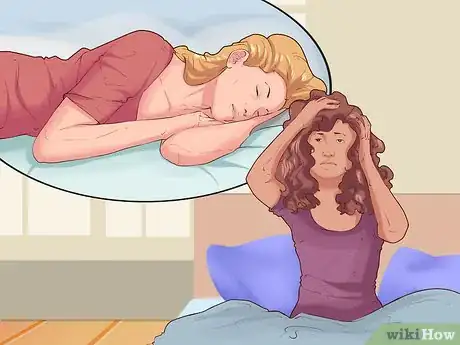
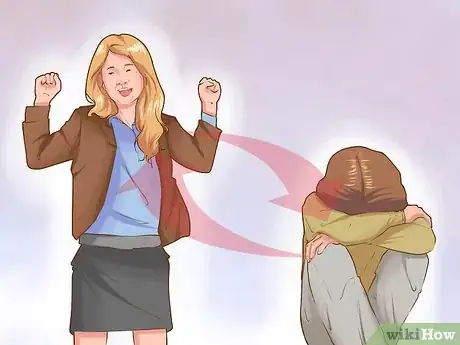


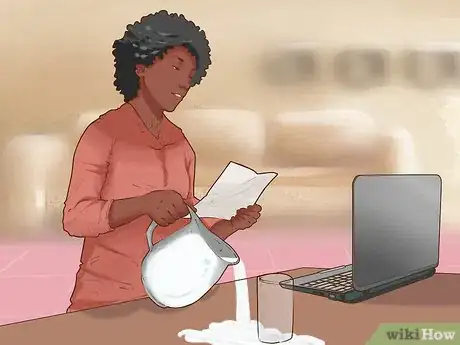

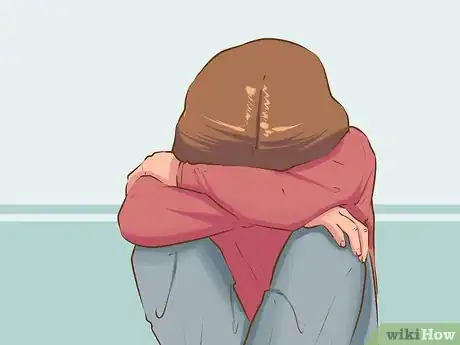
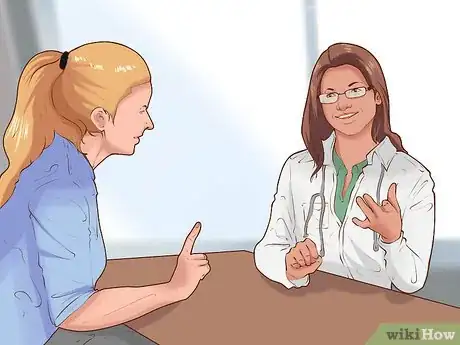
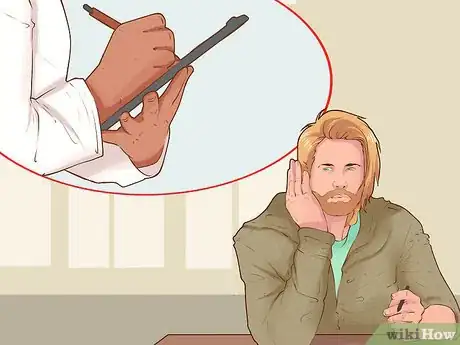



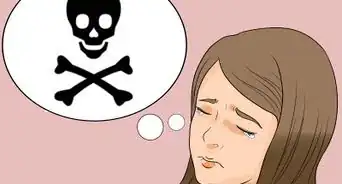


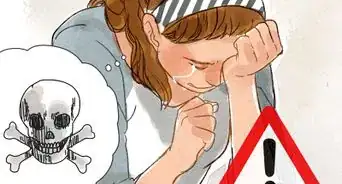

-Episode-Step-22.webp)




















































Medical Disclaimer
The content of this article is not intended to be a substitute for professional medical advice, examination, diagnosis, or treatment. You should always contact your doctor or other qualified healthcare professional before starting, changing, or stopping any kind of health treatment.
Read More...